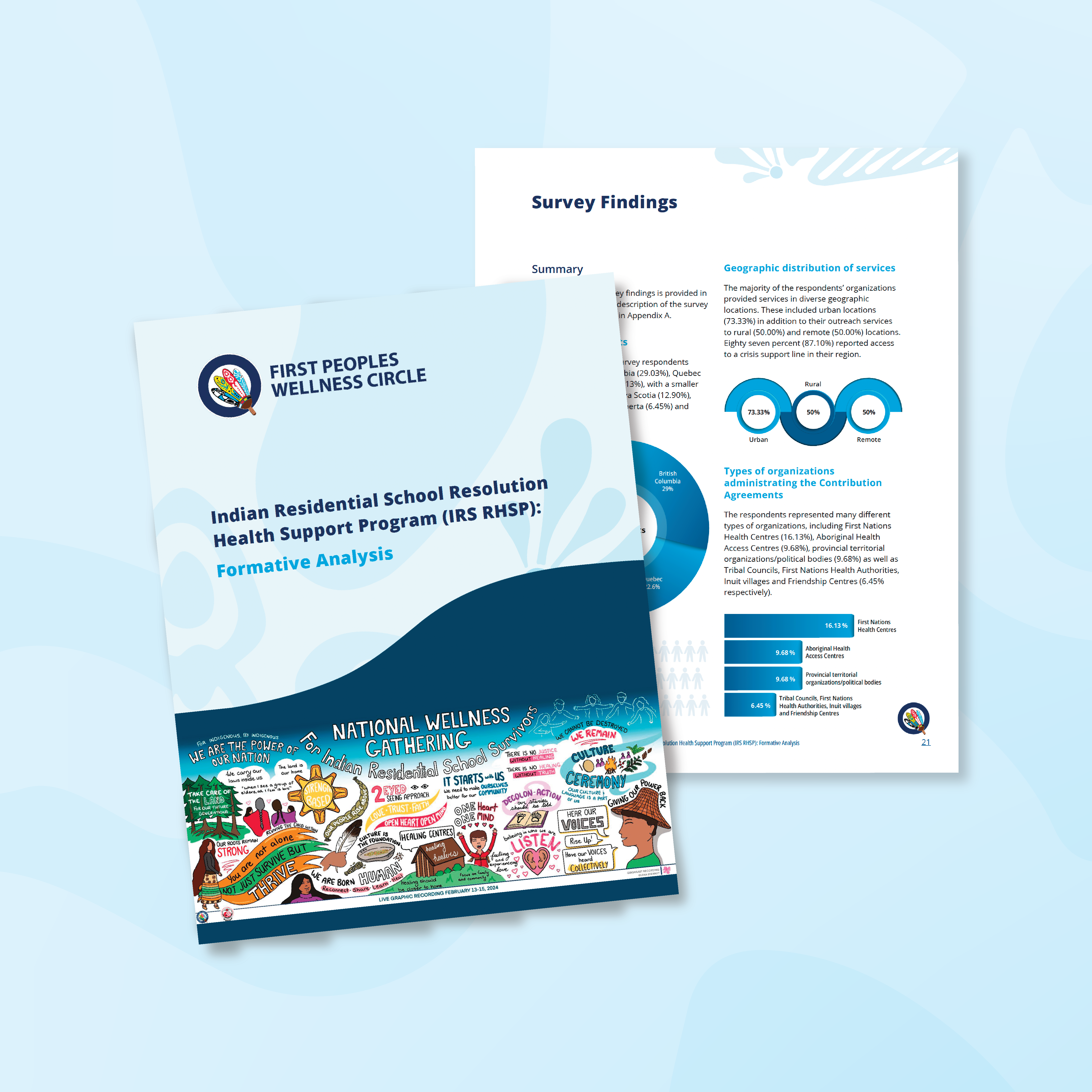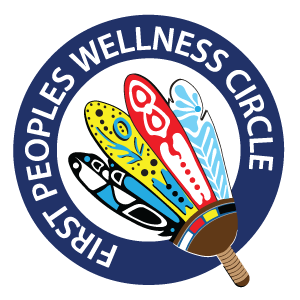In 2021, First Peoples Wellness Circle completed a qualitative assessment to document the impact and benefits of the Resolution Health Support Program (RHSP). The Qualitative Assessment report outlines how the program assists survivors of different traumas and their families from the client’s perspective.
In response to the qualitative assessment, and following the recovery of mass graves at residential schools across the country, the RHSP working group called for a formative analysis to understand the growing needs of this trauma-specialized workforce.
The Formative Analysis explores the capacity, priorities, and needs of the RHSP workforce that takes into consideration the additional duties and responsibilities related to; Indian Day School, Missing and Murdered Indigenous Women and Girls, the Sixties Scoop, the COVID-19 pandemic, National Day for Truth and Reconciliation events, and ground penetrating searches. Guided by the RHSP working group, focus groups with frontline service providers and surveys with program managers informed this report. Findings identified increased service demand, training needs, the need to care for the carers, nurturing traditional mentoring and knowledge translation, and the need for funding sustainability.
“Core funding is needed. Core funding provides not only sustainable funding, but also the ability for long-term planning, for building community capacity to include the extensive range of services and staffing that our people need. Funding needs to be sustainable and long-term to support stable programming, employment, and service delivery.”
– IRS RHSP Formative Analysis Participant
The Formative Analysis allows us to support the Resolution Health Support Program Workforce by:
- Sharing the important story and healing journey that the workforce and clients embark on together
- Advocating for funding equity and program sustainability through submitting proposals, briefing notes, and reports submitted to funders
- Planning to address the training needs identified by the workforce, including virtual learning circles, in-person training sessions, and resource development
- Answering the call for networking opportunities for the workforce to connect and share practices and support knowledge translation
To learn more about the program, the development and findings of the project, and key recommendations, click to access, view, and download the full report:

